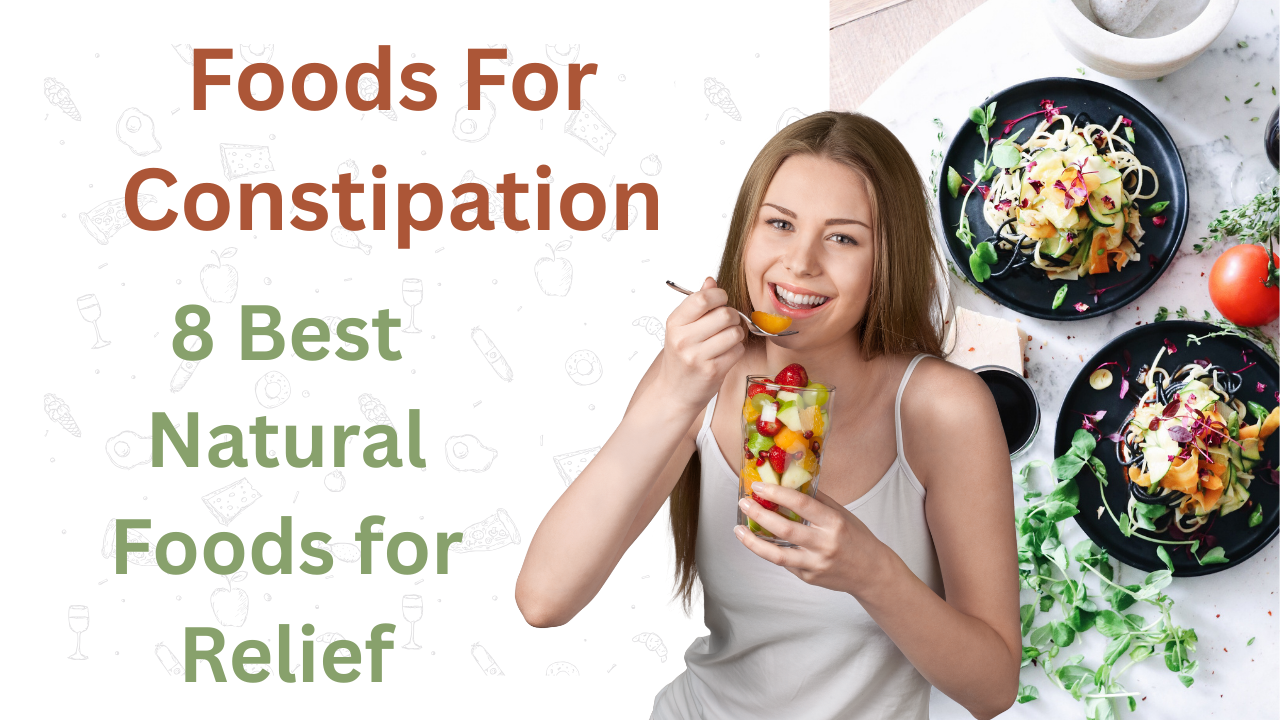Constipation is a common digestive issue that occurs when a person has fewer than three bowel movements per week. It is often linked with hard or dry stools and may require straining during bowel movements. While it can happen occasionally due to changes in diet, routine, or stress, persistent constipation can lead to more discomfort.
People suffering from regular constipation may experience bloating, stomach cramps, or a feeling of fullness. It can also cause fatigue and affect daily activities. Addressing this issue early can prevent it from becoming a long-term problem. One effective way to support digestion is by choosing the right foods for constipation.
Adding fiber-rich foods for constipation, such as fruits, vegetables, whole grains, and legumes, can help improve bowel regularity. Drinking plenty of water and staying physically active also supports digestive health. These simple lifestyle changes can make a significant difference in managing and preventing constipation naturally.

Why diet matters: The foods you eat shape gut motility. Some promote digestion and regularity; others slow you down. Knowledge empowers you to choose foods that:
Stimulate intestinal movement (via fiber, hydration, or probiotics),
Soften stool,
Aid gut health (supporting microbiome balance).
Top Most Effective Foods For Constipation
Flaxseeds (Almond of the Digestive Tract)
Flaxseeds are often called the “almond of the digestive tract” because of their powerful role in promoting gut health. These tiny seeds are rich in both soluble and insoluble fiber, which helps soften the stool and adds bulk, making bowel movements easier and more regular.
When looking for effective foods for constipation, flaxseeds stand out due to their natural ability to support digestion. They absorb water and expand in the stomach, which helps stimulate the intestines. This action can relieve symptoms like bloating, discomfort, and irregularity.
To enjoy the full benefits, it’s best to consume ground flaxseeds mixed into smoothies, yogurt, or oatmeal. Drinking enough water is also important, as it helps the seeds do their job in the digestive tract. Including flaxseeds in your daily diet is a simple yet effective way to support regular bowel movements and overall digestive health.
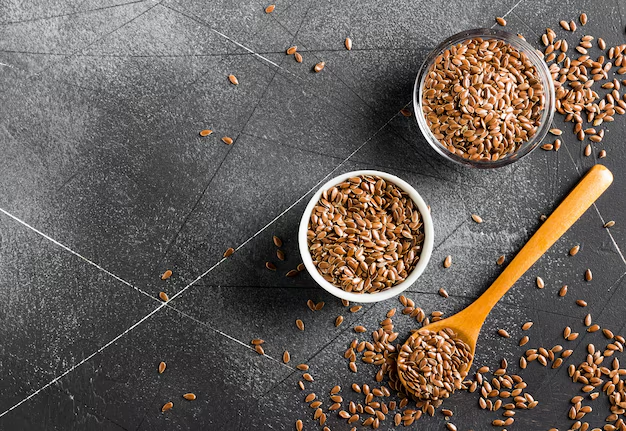
What They Offer
Rich in fiber: 2 tablespoons deliver ~5.6 g (2 g soluble + 3.6 g insoluble).
Natural laxative effect: Mucilage (soluble fiber) forms a gel that eases stool passage.
Omega‑3s & antioxidants: Support gut lining and reduce inflammation.
How to Enjoy
Ground flaxseed smoothie: Blend 1 Tbsp in yogurt-based banana smoothie.
Over oatmeal: Stir into warm porridge with fresh berries.
In baking: Substitute 2 Tbsp ground flax + 6 Tbsp water for 1 egg in muffins or pancakes.
Key Tips
–Always grind flax, as whole seeds pass undigested.
–Start with 1 tsp/day, increasing gradually to avoid bloating.
Dried Prunes (Nature’s Sweet Laxative)
Dried prunes are often called “nature’s sweet laxative” because of their natural ability to relieve constipation. They contain both soluble fiber and sorbitol, a natural sugar alcohol that draws water into the intestines, helping to soften stools and encourage smoother bowel movements.
Among the best foods for constipation, prunes are easy to include in your diet. Eating a few dried prunes daily can improve digestion and ease discomfort caused by hard or infrequent stools. They also provide important nutrients like potassium and antioxidants, which support overall health.
Prunes can be enjoyed as a snack or added to cereals, smoothies, or baked goods. For best results, drink plenty of water throughout the day. This helps the fiber in prunes work effectively and keeps the digestive system moving. Adding dried prunes to your routine is a simple and natural way to support regular bowel movements.
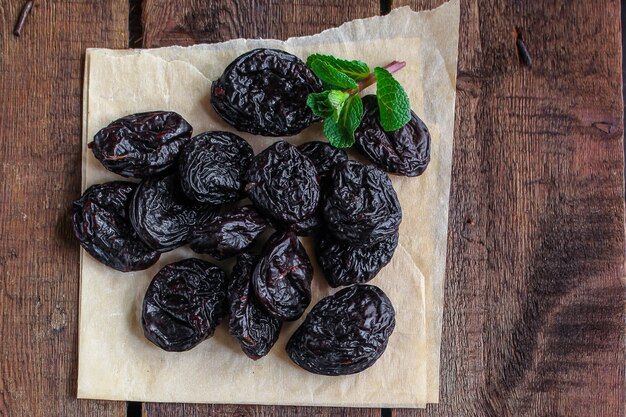
Why They Excel
High fiber + sorbitol: ~7 g fiber + 1.1 g sorbitol per 50 g (5–6 prunes) work synergistically.
Stimulates gut: Sorbitol draws water into the intestine; fiber ups stool bulk.
Scientifically proven: Multiple studies rate prunes more effective than psyllium for chronic constipation.
How to Integrate
Morning ritual: Soak 4–5 prunes overnight; eat them + drink that prune-infused water on an empty stomach.
Afternoon snack: Pair 3 prunes with a handful of walnuts or almonds.
Baking warm-up: Use finely chopped prunes in whole-grain muffins with cinnamon and nuts.
Tips
Drink water with prunes to support sorbitol-induced water absorption.
Note: Sorbitol can cause gas in sensitive individuals—start with smaller portions.
Chia Seeds (Tiny but Mighty)
Chia seeds may be small, but they are incredibly powerful when it comes to digestive health. Often called “tiny but mighty,” these seeds absorb water and form a gel-like texture in the stomach, which helps to soften stools and make them easier to pass.
Among the many foods for constipation, chia seeds are a top choice due to their high fiber content. Just a tablespoon contains a good amount of both soluble and insoluble fiber. This fiber supports regular bowel movements and helps reduce bloating and discomfort.
You can easily add chia seeds to smoothies, yogurt, oatmeal, or even water. Soaking them before eating helps activate their gel-forming ability. To get the most benefit, stay hydrated throughout the day. Adding chia seeds to your diet is a simple, natural way to improve digestion and prevent constipation.
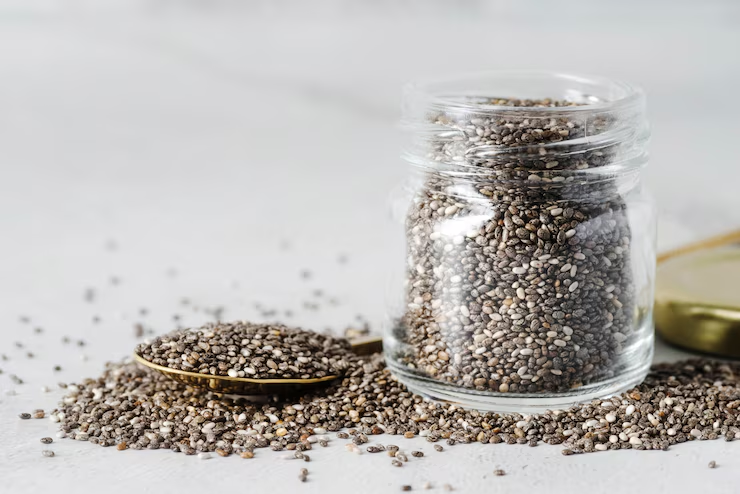
Fiber Powerhouse
2 Tbsp chia = ~10 g total fiber (9.8 g soluble).
Forms a hydrating gel that softens stool and eases transit.
Bonus Nutrients
Omega‑3 ALA, protein, minerals (calcium, iron, magnesium).
Ways to Use
Chia pudding: 1/4 cup chia soaked overnight in almond milk; top with fruit/nuts.
Yogurt booster: Stir 2 Tbsp chia into plain Greek yogurt; refrigerate briefly.
Hydration drink: Add chia + lemon slices to warm water or herbal tea.
Pro Tips
Hydrate chia fully before consumption to avoid digestive blockage.
Pair with fluids for best effect.
Berries (Nature’s Sweet Fix)
Berries, often called “nature’s sweet fix,” are not only delicious but also helpful for digestion. They are rich in fiber and water, which together support smooth and regular bowel movements. Their natural sweetness also makes them a healthy alternative to sugary snacks.
As one of the best foods for constipation, berries like strawberries, raspberries, and blueberries provide both soluble and insoluble fiber. Soluble fiber helps soften the stool, while insoluble fiber adds bulk. This combination makes it easier for the body to pass waste without straining.
Berries are easy to include in your meals—add them to cereal, yogurt, smoothies, or enjoy them as a snack. Because of their water content, they also help keep the digestive system hydrated. Including a variety of berries in your daily diet is a tasty and natural way to improve digestion and ease constipation.
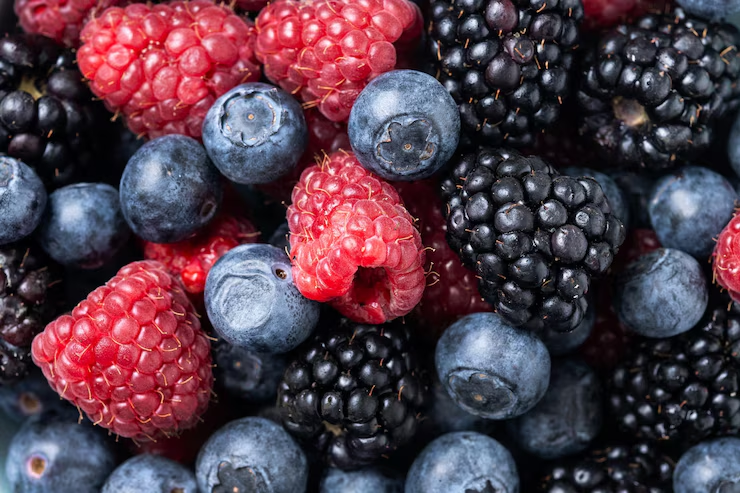
Why They Work
High in insoluble & soluble fiber: 1 cup raspberries = 8 g fiber.
Contain prebiotics (fructooligosaccharides), promoting healthy gut bacteria.
Antioxidant-rich: fight inflammation and stress in the gut.
Delicious Combos
Fiber-rich parfait: Yogurt + mixed berries + granola.
Oatmeal topper: Warm oats drizzled with honey and fresh strawberries/blueberries.
Salads: Arugula with goat cheese, walnuts, and sliced berries; vinaigrette.
Seasonal Strategy: Use fresh summer berries; frozen in colder months—they retain nutrition and taste.
Leafy Greens (Gut-Stimulating Powerhouses)
Leafy greens like spinach, kale, and Swiss chard are often called “gut-stimulating powerhouses” for good reason. They are packed with fiber, water, and essential nutrients that support healthy digestion and regular bowel movements. Their natural compounds also help keep the intestines working properly.
When looking for effective foods for constipation, leafy greens are a smart choice. The fiber in these greens adds bulk to the stool, while their high water content helps soften it. This combination can ease discomfort, reduce bloating, and prevent straining during bowel movements.
You can enjoy leafy greens in salads, soups, smoothies, or lightly sautéed. Including a variety of them in your daily diet can naturally support your digestive system. Along with proper hydration, leafy greens are a simple and natural way to keep things moving and maintain gut health.
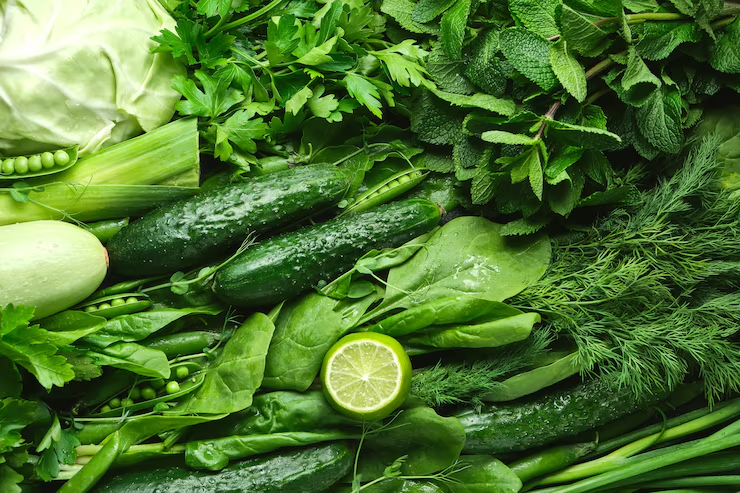
Nutritional Benefits
Excellent in fiber, magnesium, and water content—vital for stool consistency.
Magnesium relaxes intestinal muscles; fiber adds bulk; water hydrates.
Top Picks: Spinach, kale, Swiss chard, collard greens.
How to Use
Green smoothie: 1 cup spinach + 1/2 banana + water/lemon juice.
Stir‑fry: Sauté garlic/chilli; wilt spinach; serve with lean protein.
Salad base: Mix kale with olive oil, lemon; massage until tender.
Prep Tips: Massage kale with olive oil/salt to soften; always pair greens with healthy fats like avocado or EVOO for nutrient absorption.
Legumes (Fiber & Protein On Demand)
Legumes, such as lentils, beans, and chickpeas, are known as “fiber and protein on demand” because they offer both nutrients in high amounts. These foods are excellent for digestion and can help regulate bowel movements naturally. Their fiber content plays a key role in keeping the digestive system active.
As one of the most effective foods for constipation, legumes provide both soluble and insoluble fiber. Soluble fiber softens stools, while insoluble fiber adds bulk, helping waste move through the intestines more easily. Regular intake can reduce bloating and ease discomfort.
Legumes are versatile and can be added to soups, stews, salads, or made into spreads like hummus. They are satisfying, healthy, and easy to include in daily meals. Drinking enough water alongside legumes helps their fiber work better. Adding legumes to your diet is a great way to support digestion and relieve constipation naturally.
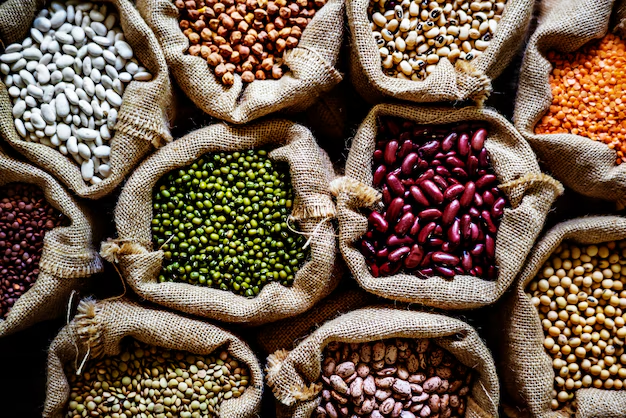
Why They’re Great
1/2 cup cooked lentils = ~8 g fiber + ~9 g protein.
Extra magnesium and iron support gut motility.
Smart Usage
Hearty lentil soup: With carrots, celery, tomatoes, herbs; serve with whole-grain bread.
Chickpea salad: Chickpeas + cucumber + tomato + parsley + lemon dressing.
Black bean tacos: Whole-wheat tortillas, beans, colorful fresh toppings.
Cooking Tip: Rinse canned beans thoroughly; soak dried beans to reduce gas and enhance digestion.
Citrus Fruits (Zesty Fiber Boost)
Citrus fruits like oranges, grapefruits, and lemons are often seen as a “zesty fiber boost” for your digestive system. They are rich in fiber and water, both of which help promote smoother bowel movements. Their natural tangy flavor also makes them a refreshing way to support gut health.
As powerful foods for constipation, citrus fruits contain a special type of fiber called pectin, especially found in the peel and pulp. Pectin helps soften stools and encourages regular movement in the intestines, making it easier to pass waste without discomfort.
You can enjoy citrus fruits as a snack, in juices, or added to salads and smoothies. For the best results, eat them with the pulp, which contains most of the fiber. Including citrus fruits in your daily diet is a tasty and natural way to support digestion and relieve constipation.
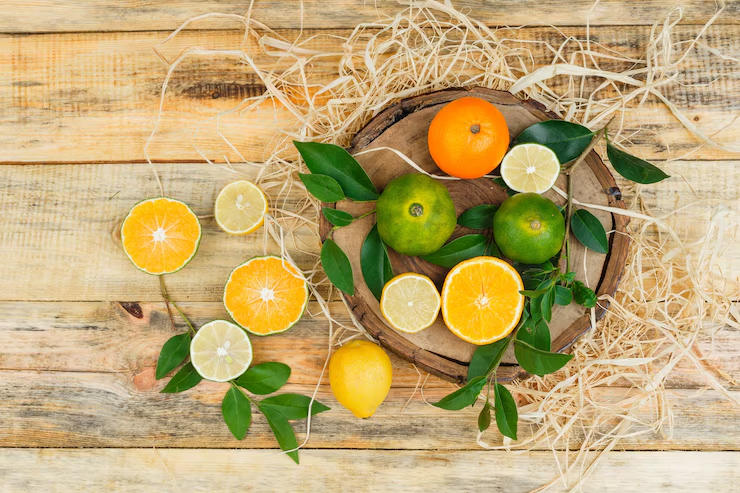
Benefits
High in fiber (white membrane and pith).
Rich in vitamin C, water, potassium—support hydration and gut function.
Best Choices:
Oranges, grapefruits, lemons, limes.
Easy Ideas
Morning hydration: Warm water + lemon juice.
Grapefruit breakfast: Half a fresh grapefruit with Greek yogurt.
Citrus salad: Orange and fennel slices with mint, olive oil, black pepper.
Tip: Eat the pith/white part for maximum fiber; avoid excessive sugary juices—opt for whole fruit.
Probiotic Yogurt & Kefir (Gut-Friendly Fermentation)
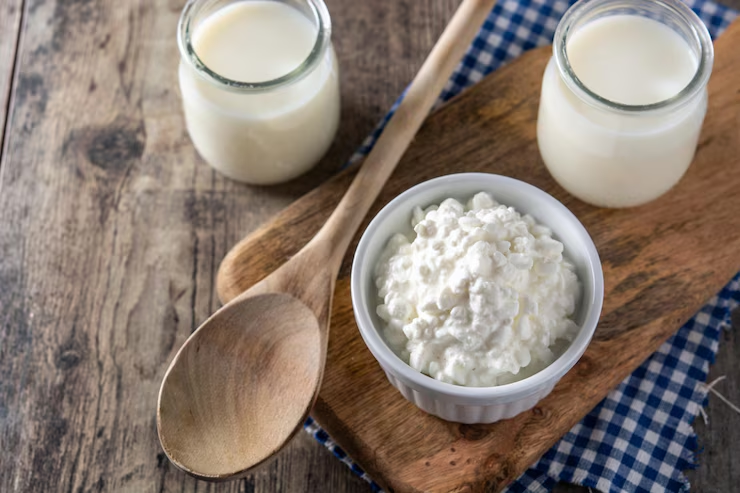
Probiotic yogurt and kefir are known as “gut-friendly fermentation” because they contain live cultures that support healthy digestion. These fermented dairy products help balance the bacteria in your gut, which plays a big role in how smoothly your digestive system works.
Among the best foods for constipation, probiotic yogurt and kefir stand out because they encourage the growth of good bacteria. These bacteria help break down food more efficiently and promote regular bowel movements. They can also reduce bloating and ease discomfort caused by slow digestion.
You can enjoy probiotic yogurt or kefir as a daily snack, in smoothies, or with fruits and seeds. To get the full benefit, look for plain, unsweetened varieties with active cultures. Including these gut-friendly options in your diet is a simple way to naturally support regularity and improve overall digestive health.
How They Help
Rich in live cultures (Lactobacillus, Bifidobacterium) that improve gut flora balance.
Fermented probiotics reduce stool transit time and enhance regularity.
Best Types: Unsweetened plain Greek yogurt with live cultures, or kefir.
Simple Serving
Breakfast bowl: Greek yogurt + berries + chia/flax seeds.
Savory drink: Kefir blended with cucumber/dill.
Dip: Mix probiotic yogurt with garlic and herbs as vegetable dip.
Tip: Choose unflavored versions to limit sugar; aim for 10 million CFUs or more per serving.
Lifestyle Tips for Constipation Relief
Diet helps—but these habits are equally essential:
Hydration is Key: Fiber needs water to work well in your digestive system. Aim to drink about 2 to 3 liters of water every day, though your needs may vary based on the weather and your activity level. Staying hydrated helps soften stools and supports the action of foods for constipation.
Stay Active: Regular movement helps stimulate the muscles in your digestive tract. Simple activities like walking, yoga, or stretching can improve bowel function. Being active also boosts the benefits of eating high-fiber foods for constipation.
Timing & Routine: Try to listen to your body’s natural urges and set a regular time to use the bathroom—often after breakfast works well. A consistent routine helps train your body and works best when combined with foods for constipation.
Proper Bathroom Posture: Leaning slightly forward and raising your feet on a small stool helps mimic a natural squatting position. This makes bowel movements smoother, especially when supported by foods for constipation in your diet.
Manage Stress: Chronic stress can disrupt the gut-brain connection and slow digestion. Simple techniques like deep breathing, meditation, or light stretching can help manage stress and work alongside your intake of foods for constipation.
Check Medications: Some medications—such as iron supplements, opioids, or certain antacids—can lead to constipation. If you notice changes in your digestion, talk to your doctor, especially if you’re already eating foods for constipation regularly.
Consider Supplements if Needed: If diet and lifestyle changes aren’t enough, ask your doctor about fiber supplements like psyllium or inulin, or magnesium citrate. These can support digestion when combined with foods for constipation and healthy hydration.
Printable 7-Day Constipation-Friendly Meal Plan
| Day | Breakfast | Lunch | Dinner | Snack |
|---|---|---|---|---|
| Mon | Overnight oats with berries + flax + yogurt | Lentil salad + greens + citrus | Sautéed salmon, quinoa & kale stir-fry | Prune + handful almonds |
| Tue | Spinach–banana smoothie with chia | Whole-wheat wrap with chickpeas & greens | Baked sweet potato, black beans & avocado | Greek yogurt + chopped prunes |
| Wed | Scrambled eggs + whole grain toast + berries | Warm lentil soup & spinach salad | Stir-fried tofu with brown rice & veggies | Orange slices + walnuts |
| Thu | Kefir chia pudding with fruit | Chickpea salad pita + greens | Grilled chicken + quinoa + lemon-dressed greens | Kefir + fresh berries |
| Fri | Whole-grain cereal + berries + milk | Vegetable–bean chili | Salmon with garlic spinach & sweet potato fries | Handful dried prunes |
| Sat | Yogurt parfait + granola + berries | Hummus + veggie wrap with sprouts | Stir-fried shrimp with brown rice + broccoli | Apple slices + almond butter |
| Sun | Pancakes with ground flax + fruit topping | Kayza (Israeli salad) with lentils | Pasta with kale, olive oil & lemon | Mixed nuts + prune bites |
Conclusion

Including the right foods for constipation into your daily diet can make a significant difference in digestive health. Whole, fiber-rich foods like prunes, flaxseeds, chia seeds, berries, and leafy greens not only promote regular bowel movements but also improve overall gut function. These natural options are safe, effective, and can be easily included in a variety of meals and snacks.
While increasing fiber intake is crucial, it’s equally important to drink plenty of water and stay active to support the fiber’s role in softening and moving stool. A holistic approach—combining nutritious foods for constipation with proper hydration, daily physical activity, and a consistent bathroom routine—can provide lasting relief and prevent recurrence.
If constipation persists despite these efforts, it’s wise to consult a healthcare provider to rule out underlying issues. But for most people, simply making smarter dietary choices and focusing on proven foods for constipation can lead to a healthier, more comfortable life.
FAQs
- What are the best foods for constipation relief ?
Fiber-rich foods like prunes, chia seeds, flaxseeds, leafy greens, legumes, and citrus fruits are excellent for relieving constipation naturally. - How much water should I drink to help with constipation ?
Aim to drink 2 to 3 liters of water daily. Proper hydration helps fiber work better in softening stool and improving bowel movement. - Can exercise really help with constipation ?
Yes, physical activity such as walking, yoga, or light stretching stimulates intestinal movement and supports regular bowel habits. - How quickly do foods for constipation work ?
Some people may feel relief within a day or two of eating high-fiber foods and staying hydrated, but results vary based on diet, activity, and overall health. - Are fiber supplements better than natural foods for constipation ?
Natural foods are generally preferred, but fiber supplements like psyllium or inulin can be helpful if you’re not getting enough fiber from your diet.


